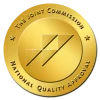Much is misunderstood about sober living. Whether TV is to blame, a pop-culture stigma being placed upon it, or the truth getting lost in translation, a sober living program seems too often to conjure images that aren’t fair to reality. The truth is — many people who struggle with addiction could greatly benefit from sober living. Sober living isn’t jail — its very purpose is to help people get well enough to reenter the world with the skills they need to move their lives forward. So, what is a sober living, and who could benefit most from it? Let’s take a look.
What Is Sober Living?
When inpatient treatment ends, patients must decide to return to their former environment or move into recovery housing known as sober living. Those on the fence about which way to go should know that sober living offers a great option to rebuild and take the next step.
Sober living homes help you maintain sobriety and stay on the path toward recovery. These facilities are typically independent of addiction treatment centers and offer private rooms. Yes, there will be some rules in place, first and foremost that no drugs or alcohol are tolerated on the premises. Often, random drug testing will be conducted to ensure these rules are followed.
There will often typically be a curfew in place that must be respected. However, residents do not have to stay within the walls 24/7. It just offers a transition phase before you re-enter your old life fully. So, you can continue to build the skills you gained in a treatment facility and not fall back into old habits.
Is Sober Living Different Than a Halfway House?
Yes! A halfway house is typically designated for people who are coming out of incarceration and have completed a drug treatment program. There are other forms of halfway houses that are intended for those who live with severe mental health disorders.
Sober living homes (also called sober houses), on the other hand, are not filled with residents who have been incarcerated. It is not part of a required sentence. Residents are typically in sober living voluntarily. Addiction treatment is offered, but not mandatory. There is also no limit to how long you want to stay.
At sober houses, you’ll gain a supportive community to help you move forward in your life free of drugs and alcohol. Sober living residents commit to abstaining from substance use while in outpatient programming and often stay in touch after leaving.
Who Would Benefit Most from Sober Living?
Think of sober living as a place to develop new habits and routines. To take what you learned in drug or alcohol treatment and apply it to your daily life. It’s a transitionary phase to prepare you to fully re-enter your life.
Often, addiction treatment conquers the initial addiction, but without sober living to transition back into life, bad habits and routines too easily reemerge. Sober living offers a support net to fully shape your new life in recovery with other people who are facing the same difficulties. You’ll gain a strong support network and community to help you handle triggers, navigate difficult days, and continue moving forward.
Above all, sober houses are best for those who want to ensure they continue to live in a substance-free environment. You’ll improve your chances to avoiding relapse, gain peer support in your recovery, and be held accountable for your choices and actions.
This helps you to live your best sober life.
Sober living programs offer:
- Independent, voluntary living facilities that provide a safe and sober environment
- Skills, meetings, and activities to help you streamline your transition back to normal life
- Guidance and support on-demand from volunteers, workers, and peers
- A community that encourages sobriety and helps you form new and meaningful sober relationships
- Sober houses provide a safe place that mitigates the risk of relapsing
Carolina Dunes Behavioral Health Is Here for You
Is a sober living program the best option for you to continue your recovery? Reach out to us to discuss your options.






